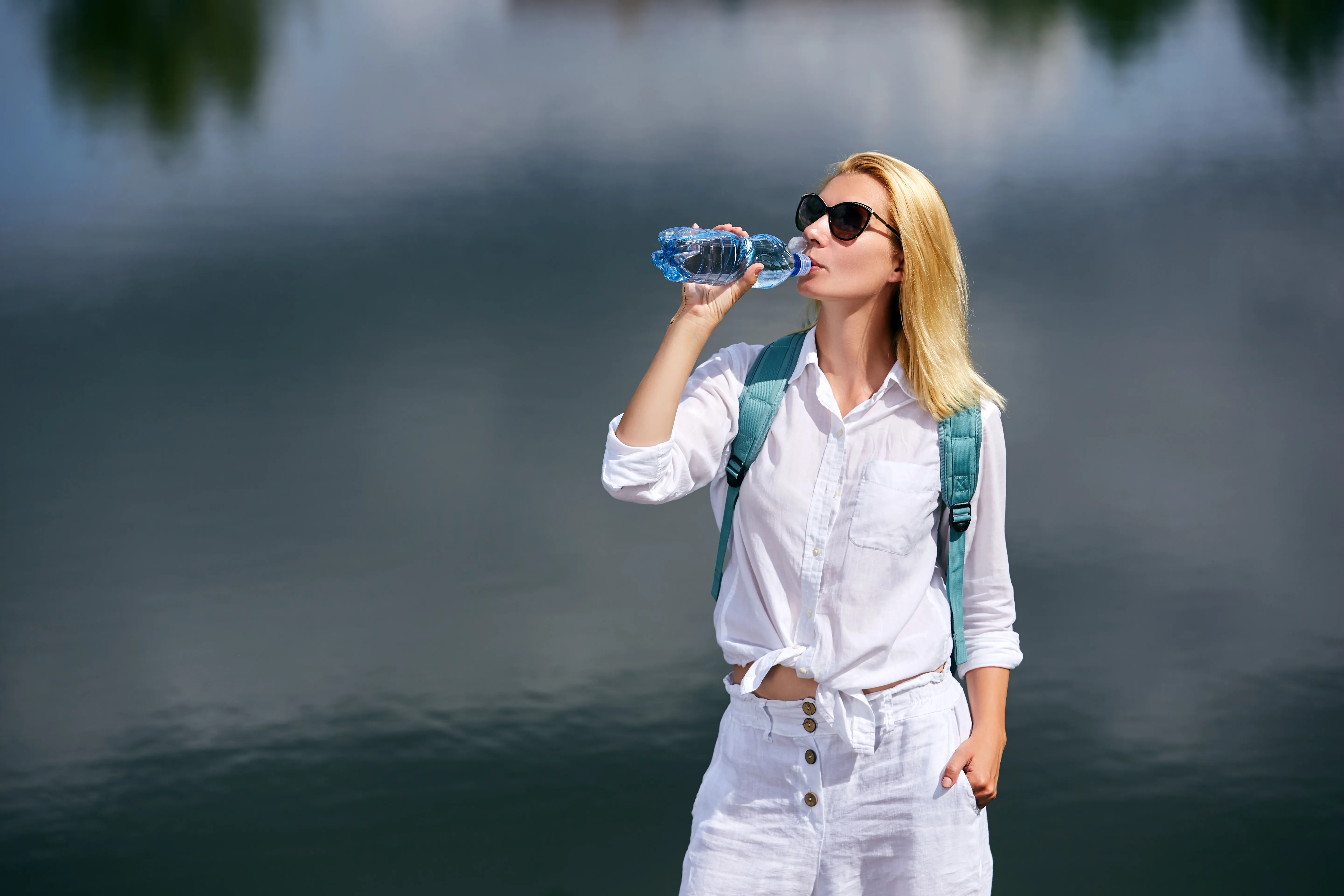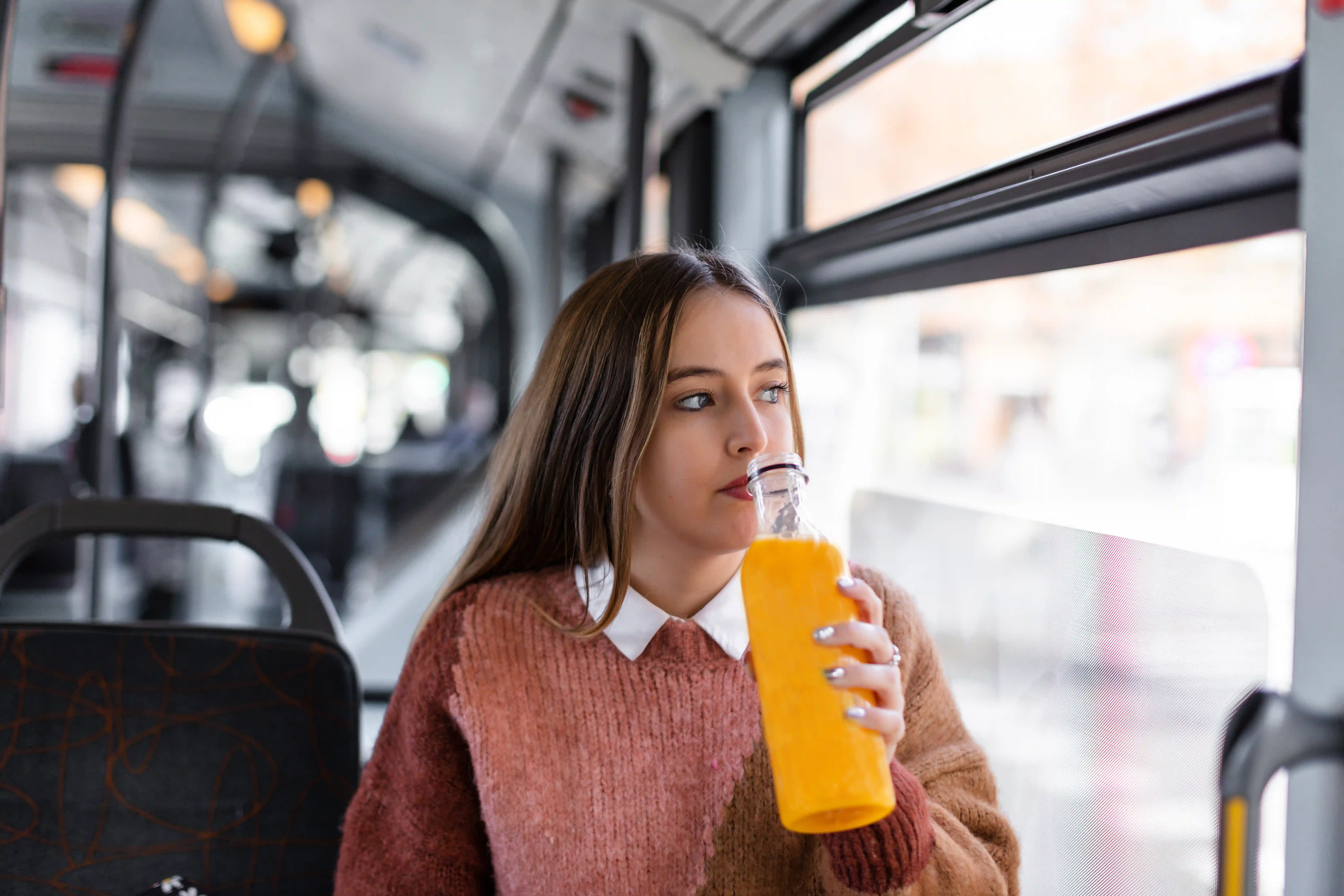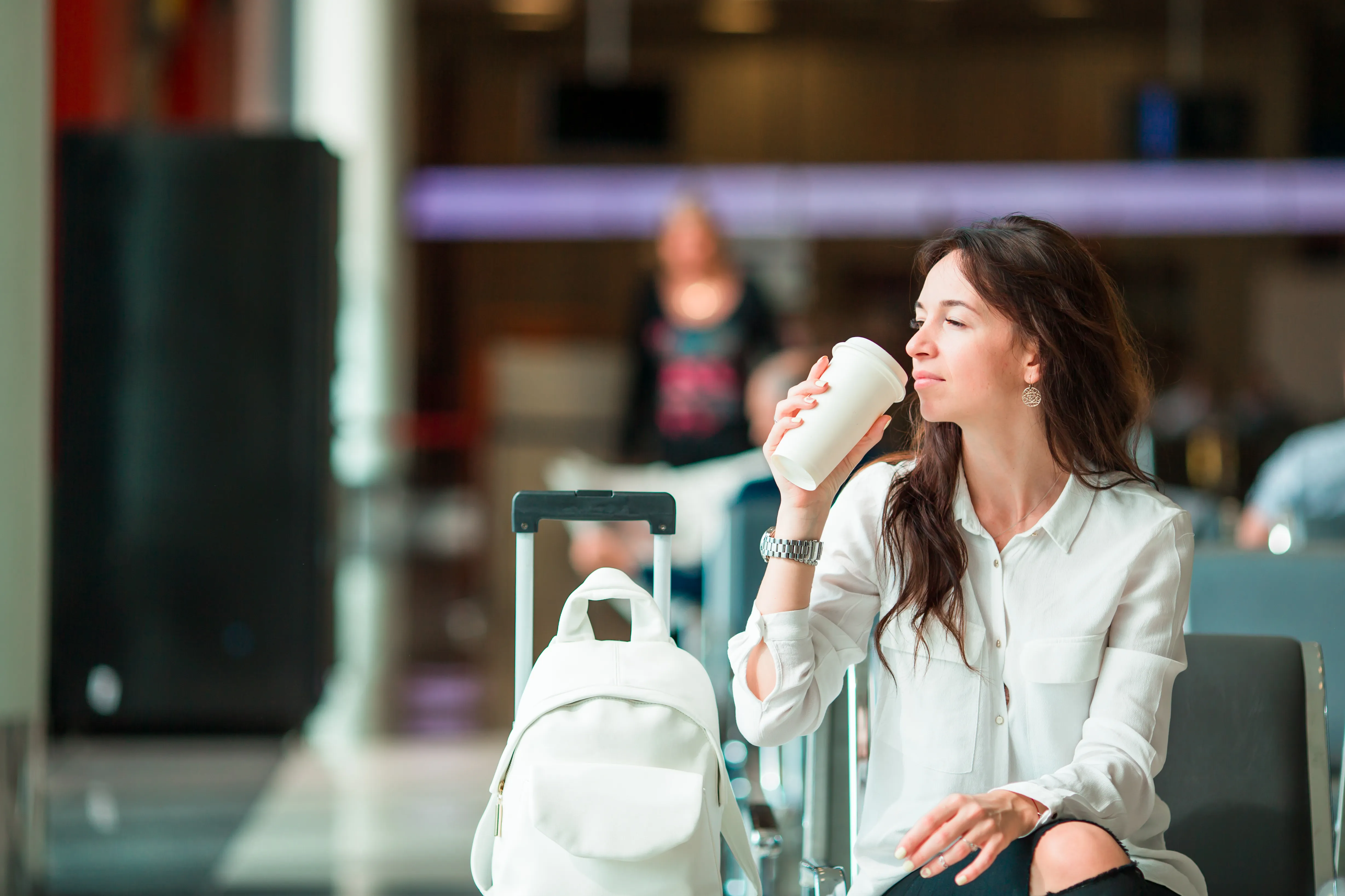Travelingcan expose you to new climates, foods, and beverages—all of which affect your body differently than at home. One often-overlooked area is what you drink on the road. From caffeine to tap water, certain beverages can disrupt digestion, sleep, hydration, or even pose health risks depending on where and how you travel.
Beverages To Avoid While Travelling and Why
Staying mindful of what you drink while traveling can help prevent fatigue, digestive trouble, dehydration, or illness.
Many drinks seem harmless but can negatively affect your body—especially when flying, changing time zones, or exposed to unfamiliar water sources. Below are the main types of beverages to approach with caution during trips.
Caffeinated Beverages
Caffeine can interfere with your sleep schedule, especially when crossing time zones. It also acts as a diuretic, which may increase your risk of dehydration on long flights. Stick to moderate intake and avoid caffeine before bedtime.
Too much caffeine can cause restlessness, increased heart rate, and anxiety. This is particularly disruptive when trying to adjust to a new time zone. Keep intake moderate and avoid multiple sources like energy drinks, coffee, and soda in one day.
Alcoholic Beverages
Alcohol can dehydrate you and weaken your immune system during travel. It also disrupts sleep quality and can worsen jet lag. Drink sparingly and never rely on alcohol to fall asleep while flying.
Alcohol weakens your immune response, which is already under stress during travel. It also impairs judgment and coordination, which could be risky in unfamiliar environments. Reserve drinking for safe, relaxed settings.
Sugary Drinks
Sugary drinks and sweetened juices can cause sudden energy crashes and irritate your stomach. They also offer little hydration value and may contribute to bloating. It's best to skip them in favor of water or naturally flavored options.
Carbonated Beverages
The bubbles in carbonated drinks can lead to gas and bloating, especially during air travel. Changes in cabin pressure can intensify this discomfort. Choose still beverages if you're prone to digestive issues.
Unfiltered or Tap Water (in Certain Regions)
Tap water in some regions may not be safe to drink due to bacteria, parasites, or chemical contaminants. This can lead to stomach upset or waterborne illness. Always check local travel advisories and opt for bottled or filtered water when in doubt.
Dairy-Based Beverages
Dairy can be difficult to digest, especially if you're lactose intolerant or have a sensitive stomach. Spoilage is also a concern if dairy isn’t stored properly. Opt for plant-based alternatives when available.
Fresh Juices from Street Vendors
Though appealing, juices sold in open-air markets may be prepared in unsanitary conditions. Contaminated water or unwashed produce can introduce bacteria or parasites. Stick to sealed bottled juices from trusted vendors.
Flavored or Bottled Teas
Some bottled teas are high in sugar, caffeine, or preservatives. Others may not be brewed in hygienic environments in certain regions. Read the label carefully or brew your own using safe water.
Hydration Tips: What to Drink While Travelling

Staying hydrated is one of the most important ways to support your body while traveling. Choosing the right drinks can enhance energy levels, improve digestion, and reduce travel fatigue. Here are the best hydration-friendly options for your trip.
Water
Plain, clean water is always the safest and most reliable option. It keeps your body functioning properly and helps reduce symptoms of jet lag. Carry a reusable bottle and fill it with filtered or bottled water.
Herbal Teas
Herbal teas like chamomile or peppermint can ease digestion and promote relaxation. They're also caffeine-free, making them a better evening option. Enjoy a cup to help you wind down before bed.
Coconut Water
Coconut water provides natural electrolytes and is excellent for hydration. It’s a great alternative to sports drinks without the added sugar or dyes. Make sure it’s from a trusted brand with no added sugars.
Fruit-Infused Water
Adding slices of fruit like lemon, berries, or cucumber to water can make it more flavorful. This may encourage you to drink more while avoiding sugary alternatives. It's also a simple way to feel refreshed.
Decaffeinated Coffee
If you enjoy the taste of coffee but want to avoid its stimulating effects, choose decaf. It allows you to enjoy a warm drink without disrupting your sleep schedule. Just make sure it’s served hot and clean in unfamiliar places.
Tips for Staying Safe with Beverages on the Go

Even when you choose the right beverages, being cautious about their source and preparation is key. Travelers should stay alert to avoid ingesting contaminated drinks or ice. These tips can help you stay safe and hydrated wherever you go.
Check Bottle Seals
Always make sure bottled drinks are sealed and unopened before opening. Broken seals can indicate contamination or counterfeit products. Trust only well-known brands and inspect the packaging.
Avoid Questionable Ice
Ice can be made from unfiltered water and may carry harmful bacteria. In many countries, it's safer to skip ice entirely unless you're sure it's purified. Order drinks without ice when in doubt.
Use a Filtered Water Bottle
A filtered water bottle allows you to drink from various sources with more confidence. This is especially helpful in areas where bottled water is expensive or limited. Choose a high-quality, travel-friendly filtration system.
Be Aware of Local Customs
In some cultures, certain beverages are served warm, sweetened, or prepared differently than expected. Understanding these customs can help you avoid surprises or unintended consumption.
FAQs
Why should I avoid caffeine while travelling?
Caffeine can be dehydrating and may interfere with your natural sleep cycle—both of which are important to manage during travel. Long flights, changing time zones, and unfamiliar sleeping conditions can already throw your body off balance. Caffeine can also increase restlessness and anxiety in some individuals, making it harder to relax.
Is alcohol safe to consume during flights?
Alcohol affects your body more strongly at higher altitudes, even if you consume the same amount, you would on the ground. It can amplify feelings of fatigue, impair judgment, and significantly increase dehydration. Combined with the dry air on airplanes, alcohol can leave you feeling sluggish and unwell.
What are the risks of drinking tap water in foreign countries?
Tap water in some countries may contain bacteria, parasites, or chemicals unfamiliar to your immune system. Drinking or even brushing your teeth with unsafe water can lead to gastrointestinal issues, like diarrhea or food poisoning. Always research the local water safety standards before consuming tap water abroad. When in doubt, choose bottled water with an intact seal or use a water purification system, such as filters or UV sterilizers.
Why are sugary drinks not recommended during travel?
Sugary beverages like sodas and sweetened juices can cause energy spikes followed by sudden crashes, leaving you feeling tired and irritable. Their high sugar content can also contribute to dehydration—especially problematic during long flights or active days exploring. These drinks may also upset your stomach if you're already adjusting to new foods and routines.
How can I ensure my beverages are safe?
To ensure beverage safety, always inspect the seal on bottled drinks to confirm they haven’t been tampered with. Stick to reputable brands or familiar packaging, especially when buying from street vendors or unfamiliar shops. A reusable water bottle with a built-in filter is an excellent travel companion—it allows you to safely hydrate using local water sources. Avoid drinks with ice if you're unsure about the water used to make it.
What are some good hydrating alternatives to sugary drinks?
For hydration without the downsides of added sugars, consider drinks like coconut water, which contains natural electrolytes. Herbal teas are another excellent option—they're caffeine-free, flavorful, and help with relaxation. You can also make your fruit-infused water by adding slices of lemon, cucumber, or berries to a water bottle.
Are there any local drinks I should be cautious of?
Yes—some local beverages may use unsafe tap water or contain ingredients unfamiliar to your system. Drinks like fresh juices from street vendors may not be prepared under hygienic conditions. Traditional beverages like kava (Pacific Islands) or yerba mate (South America) can have strong effects and may interact with medications or health conditions.
How can I make healthy beverage choices while travelling?
Making healthy drink choices on the go starts with prioritizing hydration. Choose bottled or filtered water whenever possible, and limit intake of caffeine, sugary drinks, and alcohol. If you’re exploring local options, look for freshly made drinks prepared in clean environments. Herbal teas, low-sugar juices, and coconut water are nutritious choices that support energy and digestion.
Conclusion
Staying mindful of what you drink while traveling is just as important as choosing where to eat or sleep.
By making thoughtful beverage choices, you can avoid common pitfalls like dehydration, stomach issues, or disrupted rest, and instead keep your energy steady throughout the journey. With a bit of awareness and preparation, every sip can support a smoother, healthier, and more enjoyable travel experience.
Karen Barnard
Karen is a Human Movement Science expert and a certified sports nutrition and massage therapist. At Sleepiverse, she combines her passion for human movement science and sleep health to educate herself and her readers about healthier sleep. In addition to writing articles, Karen manages a fitness studio offering private training, athletic conditioning, and sports massage therapy. She focuses on providing people with a holistic environment for people to reach their health goals, often incorporating stretch therapy to promote mental tranquillity and help people improve their sleep.


